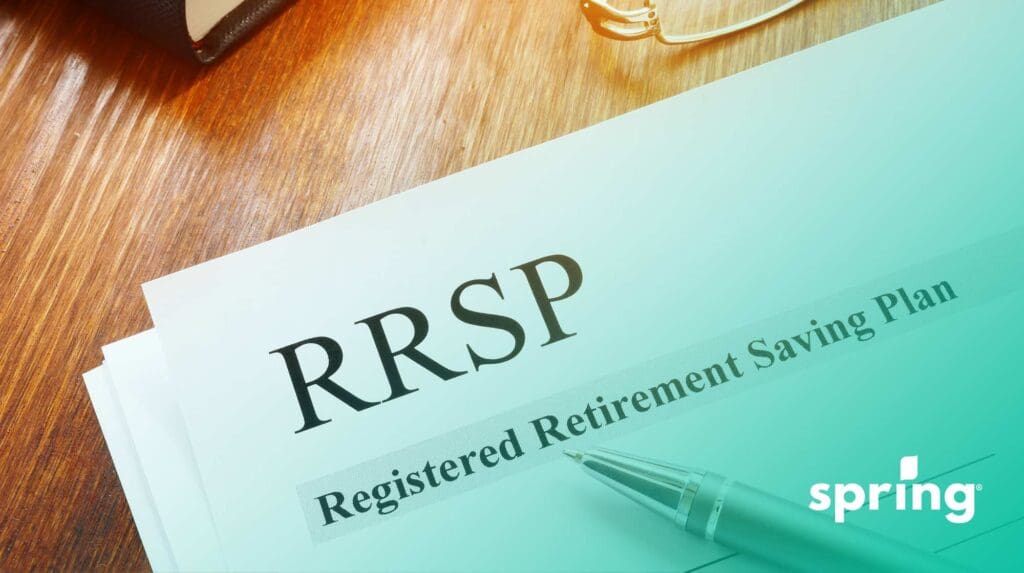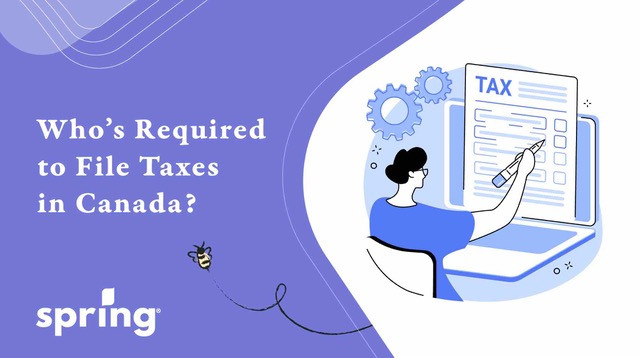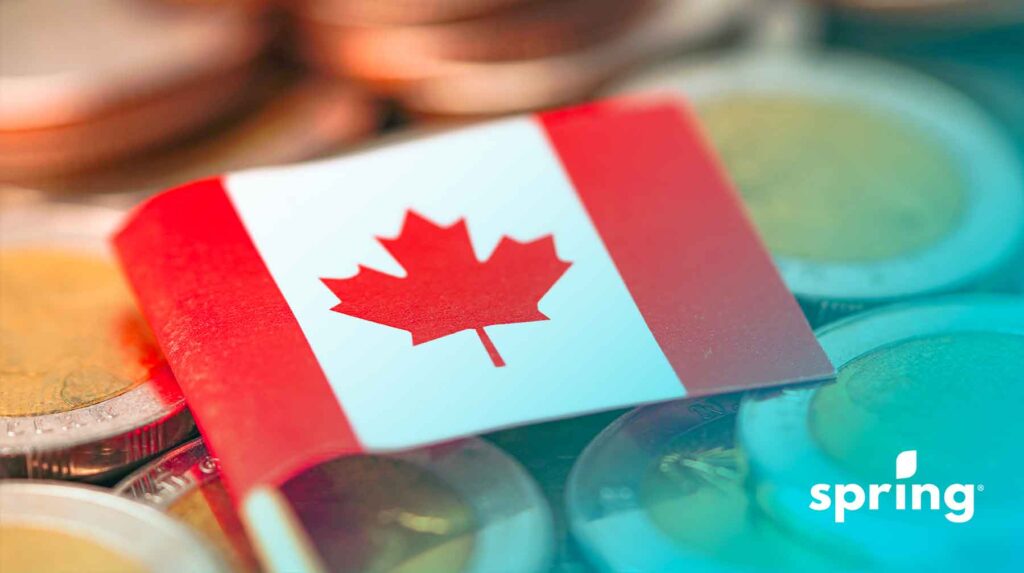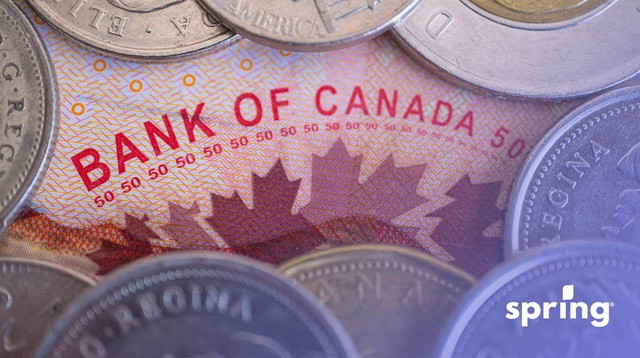Roughly 7 in 10 Canadians don’t know their current credit score, and 4 in 10 say they don’t even want to know what it is, according to Ipsos.
Being part of the “confused about credit” club shouldn’t give you too much comfort though. Your credit score is more important than you might realize and it can have a major impact on your life, whether you want to understand it or not. It can impact the loans you’re approved for (from small ones like buying a new cell phone to large ones like getting a mortgage) and even whether landlords approve your rental applications.
If you want to take more control over your financial future, learning the basics of credit scores and credit reports is a great place to start.
So, let’s start with the most basic question.
What is Credit?
Credit is an agreement between a lender and a borrower. It generally refers to a person’s ability to borrow money from a lender with the agreement to pay it back later, under specific terms. This can be in the form of a credit card, mortgage, small business loan, and so on.
For credit to work, the lender needs to trust that the borrower will be able to pay back the loan on time. One of the ways lenders assess how much they trust a certain borrower is by looking at that borrower’s credit score.
You’ve probably heard the phrases “bad credit” or “good credit” before. These are general terms that broadly refer to a person’s credit score. If you have good credit, it means lenders will have more trust in you to repay a loan, and therefore they’ll be more likely to approve your application for a loan. If you have bad credit, it means you might have a hard time getting approved for loans, even something small like a new cell phone.
People with good credit tend to get approved for lower interest rates compared to those with bad credit. This is because there is a higher likelihood for default with bad credit borrowers, and lenders offset their financial risk with increased interest rates.
The good news is, with the right behaviours, Canadians with bad credit are able to increase their credit score and achieve a good credit rating. On the other hand, there are ways to lower your credit score too. You’ll learn more about this below.
What is a Credit Report?
A credit report is a document that is created and maintained by the credit bureaus. It includes personal information (like your name, Social Insurance Number, and address) as well as the details of your entire financial history, as it pertains to credit. It’s also known as “consumer disclosure”. Think about it like a report card. Financial information you’d find on your credit report might include:
- Payment history
- Negative bank account information (overdraft)
- Collection debt or bankruptcy information
- Types of credit used (lines of credit, loans, credit cards, etc.) and when you opened the accounts, how much you’ve been approved for, how much available credit you’re currently using, if you’ve ever been late with payments, and more.
Your credit score, which is a three digit number between 300 and 900, is calculated based on the information in your credit report.
What are Credit Bureaus?
Credit bureaus collect and keep track of the credit ratings and histories of individuals. There are two credit bureaus in Canada—Equifax and TransUnion. Each company has slightly different ways that they calculate a credit score, but they’re mostly the same. The credit scores calculated by these bureaus are then made available to lenders when they’re assessing loan applications.
What is a Credit Score?
A credit score is a three digit number between 300 and 900 that has been calculated by a credit bureau. Its purpose is to grade the likelihood of an individual to pay their bills on time. The higher the number, the more trustworthy an individual looks to potential lenders.
Credit scores are calculated based on a number of factors in your credit report. Some of the main ones—according to the credit bureau Equifax—include:
- Payment history: How often do you pay your bills on time? Do you have a history of late or missed payments?
- Used vs. available credit: How much of the total credit available to you are you using?
- Credit history: How long have your credit accounts been active? Have you been able to handle credit accounts over a long period of time?
- Public records: Do you have a history of collections or bankruptcy?
- Credit inquiries: Have there been many recent hard inquiries into your credit file?
What is a Good Credit Score in Canada?
A “good” credit score in Canada is considered to be anything over 660, but the really favourable conditions begin after 760. Once you’ve established good credit, you’ll be able to access more loan products with favourable terms and lower interest rates. Good credit also makes it easier to find employment and provides more housing options.
How to Improve Your Credit Score
If your credit score is on the low side and you want to improve it, there are a few things you can do to move it in the right direction.
- Always pay your bills on time: Accounting for 35% of your credit score calculation, payment history is the single biggest factor in how your credit score is calculated. That means you should make sure that you pay every single bill on time and in full. Every late or missed payment will damage your credit score. On the other hand, every bill paid on time and in full will improve your credit score. It’s all about consistency. Lenders want to see a long pattern of bills paid on time, in full.
- Control your credit card spending: Credit cards (and other types of revolving credit) can help you build credit, but only if you can keep your credit utilization rate low. According to the credit bureau Equifax, you should use no more than 30% of the revolving credit available to you. For example, if you have two credit cards with a combined limit of $2,000 try to keep your combined balance under $600 at any given time.
- Use different types of credit: Institutions have more confidence lending to borrowers who prove they can manage a diverse mix of credit (personal loans, car loans, mortgage, credit cards, etc.). But that doesn’t mean you should apply for every loan product you can get your hands on. You should be thoughtful and selective when it comes to choosing loan products, as discussed below.
- Be selective with credit: You should only apply for new loan products that are essential and beneficial to your personal finances. Applying for lots of different loan products in a short space of time will reflect poorly on your credit report.
How A Good Credit Mix Can Affect Your Credit
While even having one piece of credit can have an impact on your credit score, the more you have isn’t always better. If you have a bunch of the same type of credit, then this isn’t really helping lenders see how you can manage your finances, but having a good credit mix can really be beneficial.
An example of this would be having a phone bill, a credit card and a personal loan. Not only will having these three things in good standing be good for your credit score, it will also show lenders that you are able to handle a variety of finances which could improve your chances of approval.
What Causes My Credit Score to Drop?
If you’ve already established good credit, or you’re trying to improve your credit, you need to be aware of what behaviours will lower your credit score. If your credit score drops too low you’ll find it hard to get approved for new loans and credit products.
- Missing payments: Payment history is the single biggest factor in how credit bureaus calculate your credit score. When you miss payments, or your payments are late, it can be a big blow to your credit score.
- Racking up credit card debt: Credit cards are a great way to build up positive credit but lenders get wary when you’re using too much of the credit available to you. If your credit utilization is above 30-35%, your credit score may take a hit.
- Applying for too many loan products: When you apply for a new credit card or loan, the lender checks your credit score. This is called a “hard pull”. When you apply for several different types of loans (mortgage, auto, credit card) all in a short period of time, there will be a number of “hard pulls” on your credit report, and bureaus may view it as a sign of financial hardship.
- Closing older accounts: It might sound counterintuitive, but since credit history is an important factor that determines your credit score, closing the account of an old, unused credit card can actually lower your credit score.
Different Types of Credit in Canada and How They Work
When it comes to credit in Canada, there are four main types: Open, Revolving, Mortgage and Installment. That said, within each type of credit you will find different credit products. Let’s take a look at what these are and how they work.
Open Credit
Open credit refers to phone bills with mobile phone companies, cable bills and any other kinds of monthly bills that are reported to the credit bureaus. These are the bills that you need a credit check in order to open the account. While these accounts won’t build your credit score, missing payments can hurt it. This is because only the payments that you miss will be reported. This is actually how paying your bills on time can make a difference with your credit score.
Revolving Credit
The most popular type of credit refers to revolving credit. This refers to credit accounts like credit cards and lines of credit. The reason that it’s called revolving credit is that they aren’t a one time loan. You can spend and pay off what you use on these accounts, while continuing to use them.
With revolving credit, you’re given a maximum credit limit that you can use. However, to keep your account in good standing, you do have to make your monthly payments on time. What most people don’t know either, is that using the maximum amount of your allotted credit limit can also harm your credit score. In order to maximize your credit score, you want to keep your total credit used less than 30% of your total credit limit.
When we refer to your total credit limit, we mean the total amount of all of your credit limits put together. So, say you have both a credit card and a line of credit and your limit of each is $2,000. This would give you a total credit limit of $4,000. It doesn’t matter the breakdown of what amount is on each credit product, as long as it’s a total below 30%.
Installment Credit
Installment credit refers to credit products that allow you to purchase an item for a fixed price and pay it back over time. It can also refer to borrowing a set amount of money with pre determined payments over time. Each of these accounts will also have an end date when the payments will be completed.
Installment loans are things like personal loans, and auto loans. When you borrow money using these methods, you’re given so much money or the item up front. The pre-set payments then come out of your account until the amount of money or item is paid off in full. How it affects your credit score is different than with a revolving credit account.
The amount you borrow doesn’t have much of an effect when it comes to your credit score. With installment credit, it’s your payments that matter. All positive payments affect your credit as well as missed payments. This is why using an installment loan responsible can have such an impact on your credit score. That said, if the loan is for an asset like a car, missing payments can not only result in a hit to your credit score, but the asset can also be repossessed.
Mortgage Credit
While a mortgage can also be considered a type of installment credit, it has a bit of a different structure so some consider it to be in a credit category of its one. Technically, mortgages are a form of a secured loan. This means the home is yours as long as you make your payments on time. That said, missing your payments could result in a foreclosure on your home.
The reason the mortgages are different from your typical installment loan is because you have an initial amortization period that you’re approved for. This period is typically between 25 and 30 years and dictates how long it will take you to pay off the mortgage. However, the specifics of a mortgage loan work a little bit differently.
Separate from the amortization period of a mortgage is the term. How this works is a mortgage is typically renewed every 3 to 5 years with a mortgage lender, depending on the term you choose. With this term the percentage rate of the mortgage rate changes as well. So even though you’re technically approved for a 25 year mortgage, you do have to redo your mortgage term every 3 to 5 years depending on your contract.
Do I Have a Credit Score and Not Know It?
The vast majority of Canadians don’t know what their credit score is but it’s a good idea to check it every so often.
- It will give you a good idea of what to expect in terms of approval rates.
- It is a good way to identify any errors or fraudulent activity on your report.
- If you have bad credit, it will help you determine whether you need to change some of your spending behaviours.
It’s possible to request your credit report from either of the credit bureaus in Canada, Equifax or TransUnion, but the process can take several days. Each bureau offers a few different ways to request your report and only some of them are free, so make sure you’re choosing the correct option.
The simplest way to check your credit score, absolutely free, is with an online service like Borrowell. You can sign up and get free access to your Equifax credit score in a few minutes. Plus, the app uses an AI credit coach to provide you with personalized tips to improve your credit score over time.
Checking Your Credit Score for Free
In Canada, it’s important that you keep up to date on your credit score. This is because your credit is not only used to get more credit products, but prospective employers and landlords also use it to assess your dependency as an employee or a renter. You can easily keep an eye on it using a free credit report through the following sources.
Borrowell
Borrowell allows you access to your free credit score and credit report from Equifax. Equifax is one of the main credit bureaus and has their own scoring model, different from Transunion. By using this to check your own credit report, you can see any credit products you have, even student loans and those through private companies. You can also check your score often since they do frequent credit checks. There’s even access to information on how to get a higher credit score, and which products will work best for you.
Credit Karma
Just like Borrowell, Credit Karma gives you access to your credit score through one of the two main credit bureaus, except of the major credit bureaus, they use Transunion. And just like Borrowell, Transunion has their own criteria and credit products they use to get your credit score.
Credit karma shows you the minimum credit score you need for some credit products, which credit card issuers and credit card companies are most likely to give you a credit card, and which areas of your credit report you need to work on to improve your score. They also give you education on how credit scores work and notify you if you have too many credit checks on your report.
Clear Score
Clear Score is another free credit monitoring tool that gives you access to your Transunion report. It will show you a breakdown of your credit report, including any activity from a collection agency or even creditors. It will also break down how you use your credit, and what negatively impacts it. Any late payments and store cards you have will also show up.
Transunion
While Transunion does allow you to monitor your credit with them for a monthly fee, you’re also able to get one free copy of your credit report per year. This is usually a hard credit check, so it’s a very detailed breakdown of your credit.
Equifax
With Equifax, you can get a free copy of your full credit report every year. You can also choose to sign up for monthly credit monitoring just like Transunion.
The Most Powerful Form of Credit for your Credit Score
While any form of credit can have an impact on your credit score, the most powerful is a credit card. As we mentioned, how you use a credit card can have a large impact on your credit health. Keeping your credit below 30% of your available limits is a big part of this. That said, you can’t always pay it off. A trick you can use to keep your usage low, is to get a credit increase of another form of revolving credit.
That said, because everyone’s financial situation is different, it can be difficult to get a credit card. This is where secured credit cards come in. They’re known for granting credit to anyone as long as you pay the security deposit. The credit card can then be used to improve your credit score. It’s a great way for those who have trouble managing credit to learn and improve their score.
Final Thoughts
When it comes to credit scores in Canada, the general consensus is the higher the better. In order to achieve this you want to have a good credit mix, keep your credit usage low, and make all of your bills on time. That said, if your credit score does take a hit, it’s not impossible to improve it.
While improving a credit score can be more difficult than just making your bill payments on time, there are ways you can do it. There are even credit products out there that are designed in order to improve your credit score. No matter what your score is, it’s never too late to develop healthy credit habits and improve your credit health.
Read more: How To Build Credit from Scratch in Canada








